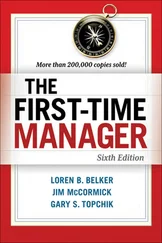Джон Болл - The First Team
Здесь есть возможность читать онлайн «Джон Болл - The First Team» весь текст электронной книги совершенно бесплатно (целиком полную версию без сокращений). В некоторых случаях можно слушать аудио, скачать через торрент в формате fb2 и присутствует краткое содержание. Год выпуска: 2013, Жанр: Триллер, на английском языке. Описание произведения, (предисловие) а так же отзывы посетителей доступны на портале библиотеки ЛибКат.
- Название:The First Team
- Автор:
- Жанр:
- Год:2013
- ISBN:нет данных
- Рейтинг книги:5 / 5. Голосов: 1
-
Избранное:Добавить в избранное
- Отзывы:
-
Ваша оценка:
- 100
- 1
- 2
- 3
- 4
- 5
The First Team: краткое содержание, описание и аннотация
Предлагаем к чтению аннотацию, описание, краткое содержание или предисловие (зависит от того, что написал сам автор книги «The First Team»). Если вы не нашли необходимую информацию о книге — напишите в комментариях, мы постараемся отыскать её.
Student protesters are being slaughtered in the Midwest.
The Jewish pogroms have begun.
You are now living in Soviet — occupied America!
One nuclear submarine and a handful of determined patriots against the combined might of Russia and Soviet-occupied America… The Most Explosive and Gripping “What If” Novel of Our Time!
First published January 1971
The First Team — читать онлайн бесплатно полную книгу (весь текст) целиком
Ниже представлен текст книги, разбитый по страницам. Система сохранения места последней прочитанной страницы, позволяет с удобством читать онлайн бесплатно книгу «The First Team», без необходимости каждый раз заново искать на чём Вы остановились. Поставьте закладку, и сможете в любой момент перейти на страницу, на которой закончили чтение.
Интервал:
Закладка:
Obviously uncomfortable, the middle-aged man started out to find the ship, inquired twice for directions, and at last located her berth. He crossed the brow onto her deck and was intercepted by a lieutenant junior grade, who had the mock position of being the Officer of the Day.
“Who are you?” the OD demanded. He was fighting his own private war; whatever they did to him, and to the ship under his feet, he was an officer of the United States Navy and he was damn well going to show every enemy son-of-a-bitch who might be watching how such a man conducted himself.
The workman dug his credentials out of his pocket and showed them. “Summers,” he said.
The lieutenant scanned the pass and the letter of authorization, wondering to himself as he did so how an American, any American, could so lower himself as to help the enemy take over the property of the United States government. “All right,” he said, with cold contempt.
“How do I get in?” Summers asked. The lieutenant pointed toward the hatch, not wanting to speak unless he had to.
Summers took the direction without comment, put the papers away, and then painfully climbed down through the indicated opening.
Operation Low Blow had begun.
In his cell at the federal penitentiary at Leavenworth, Kansas, Erskine Wattles, black ultramilitant, was desperately impatient. He had fought and fought hard for this day and he was anxious for his reward.
The people who had now taken over the country had to know who he was and where he was to be found. He had met with them or their representatives on many occasions; they had given him much encouragement and some money. They had also promised him, in a rather vague manner, that if he helped in certain directions, he would rise to a position of great power and importance. Power had been the magic word; he had savored it and hung onto it, and dreamed of the day when he would be mighty in the land.
To symbolize the new power that would be his he rose to his feet and looked about his narrow cell with the feeling that he was a great man whose very thoughts would burst the walls that held him captive. He strode the two or three steps permitted him by the stones and the bar$, then turned and strode the other way, trying to ignore the blood-boiling frustration of the limited space at his disposal. In the upper bunk he saw the inert back of his cellmate, an unimaginative rapist who had gotten horny and dragged a thirteen-year-old girl across a state line. He was stupid, and despite the fact that he was black, Wattles hated him.
He did not want to take hold of the bars to feel his own strength, because to do that would be to acknowledge their existence and the fact that they held him prisoner. He would not be kept in prison; every minute of his time was vitally important to his future plans. And for every bit of time that he was held back, those who had put him here would pay with their life’s blood when he became dictator.
No one but a black man could run the country, and he knew that he had been chosen. He was the leader; he had proven that the first time he had organized a celebration in honor of the anniversary of the death of the black traitor to his people, Martin Luther King. He had made a speech that had rocked the whole nation that day, and they surely knew who he was after that.
With the Weathermen he had helped to lead the attack on the colleges and universities; he alone had closed a campus of the University of California for weeks and had kept hundreds of advanced degree candidates from graduating. At the time of his proposed induction into the armed forces he had provoked and led a riot which had put more than thirty people into the hospital, a lot of them pigs. He loved that word — pigs — he had shouted it, screamed it, made it synonymous in the minds of most of the black people for any kind of policeman or any member of the armed forces.
He had been in all of the big ones — the Watts riot, the Chicago Democratic convention, the peace marches, the campus blow-offs. The only man who had been ahead of him, and that was because he was a big name singer, was Orberg. But Orberg had never had the nerve in court to leap onto the bench and punch a federal judge’s face with his thumbs out and hard enough to blind him permanently in one eye. He and he alone had been able to do that. And every sick pig in the country had been afraid of the name of Wattles that day and they were still afraid. Because he was coming out now and when he hit the street, the whole world was going to be his.
His sharp lawyer, a Jew named Wolpert, had gotten him out on bail for another appeal. Wolpert had pleaded that his client had been under the effect of drugs, to which he had been addicted for years, and therefore was a sick man. Because his lawyer had told him to, he, Erskine Wattles, had hung his head and playacted, and had gotten out on bail that a lot of protesters had put up because he was their great hero.
He had had it made then except for the lousy Korean pig. Who in hell expects a Korean to be on an airplane anyway! His gun had scared every lily white bastard to death and they were already over the water on the way to Cuba when the Korean pig had had to go to the can. He had let him, and for thanks the pig had jumped him with his goddamned karate or something, mocking the authority of his gun, and the pilot had turned back toward the mainland.
Mao had said that power came from the barrel of a gun, and he knew that that was right, only the frigging Korean pig that he had been nice to had betrayed him. And now he was in this goddamned hole, waiting to get out and dying every minute that he wasn’t out and tasting the power that he had been promised. For a month the pigs had been eating dirt and nobody had come for him yet. When they did, he’d show them who was the big man! He rushed to the bars of his cell, grabbed them hard in his powerful hands, and yelled at the top of his lungs, “PIGS! PIGS! PIGS!”
During the month that he had been on his new job Hewlitt had learned a great deal. With the initial shock of the conquest over and dissipated, the remaining members of the White House staff had settled down to what was substantially a waiting game. Cedric Culp, the former press aide of the President, was now doing the same job for Zalinsky; in addition he was an active member of the underground cell. Both Barbara and Mary remained on the roster, and there were now three others. The orders routed through Frank had been specific; wait. Pick up any available information, report it through channels, but take no individual actions without direction. All of them had played the game exactly that way, but Hewlitt could not help wondering from time to time how much his colleagues would be influenced if they knew that the directions which he was faithfully passing on to them were being routed through a Negro taxicab driver.
However, if it seemed hard to credit at times, that was all to the good, because it would confuse the enemy even more. “Protective coloration” was the phrase that Frank had used, and it was valid.
The one most encouraging thing was the knowledge that something was being done. Hewlitt was satisfied as to that. You had to believe in something, he told himself, and wondered if the day would come when Frank’s invisible boss would establish a direct contact.
The intercom light went on, indicating that Zalinsky wished to see him. He picked up paper and pencil as always, if for no other reason than to cover the fact of his well-trained memory, and went into the Oval Office. Zalinsky worked with his coat off a good part of the time now, and while Hewlitt was not privy to much that crossed the administrator’s desk, he was aware from the man’s general manner that not everything was going as he would have liked.
Читать дальшеИнтервал:
Закладка:
Похожие книги на «The First Team»
Представляем Вашему вниманию похожие книги на «The First Team» списком для выбора. Мы отобрали схожую по названию и смыслу литературу в надежде предоставить читателям больше вариантов отыскать новые, интересные, ещё непрочитанные произведения.
Обсуждение, отзывы о книге «The First Team» и просто собственные мнения читателей. Оставьте ваши комментарии, напишите, что Вы думаете о произведении, его смысле или главных героях. Укажите что конкретно понравилось, а что нет, и почему Вы так считаете.












